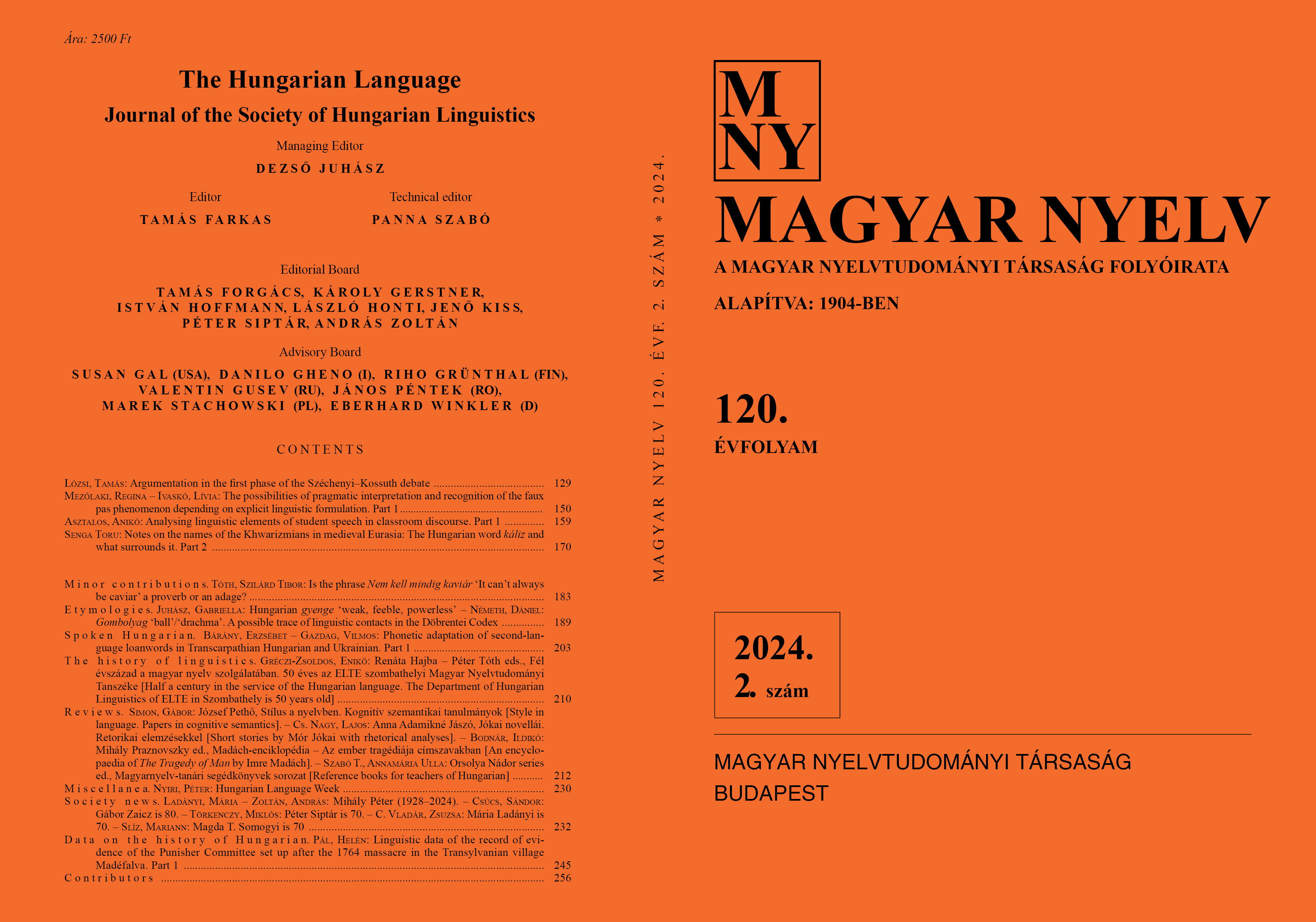Is the phrase Nem kell mindig kaviár ‘It can’t always be caviar’ a proverb or an adage?
DOI:
https://doi.org/10.18349/MagyarNyelv.2024.2.183Keywords:
phraseology, proverb, catchphrase, conversational routine, Hungarian language, German language, English languageAbstract
In the Magyar közmondások nagyszótára (and its predecessor, the Magyar közmondástár), the phraseme Nem kell mindig kaviár (It can’t always be caviar) is used in the following sense: ʼthe best, the most expensive, the most delicious are not always neededʼ (T. Litovkina 2005: 324, 2010: 324). It does not appear in more relevant Hungarian phraseographic and paremiographic works (Forgács 2003, Ujváry [2003], Bárdosi 2015, Szemerkényi 2019), although the word kaviár ʼcaviarʼ has been recorded in Hungarian language since 1783 (TESz. 2: 413, ÚESz.). The phraseme, which was popularised by a TV series based on Johannes Mario Simmelʼs novel “Es muss nicht immer Kaviar sein”, which was shown in Hungary in 1982, is more a catchphrase (adage) or a formulaic expression (conversational routine) with catchphrase origin than a proverb. According to my survey, it is not considered widespread, nor it does not show the formal features of a proverb, such as the logical structure p → q. The meaning of the original German phraseme given in the German phraseographic literature (Duden 2002: 392, Duden 2017: 403) corresponds to the meaning given by T. Litovkina. The caviar component is rather rare in the European proverbial treasure, although not entirely unknown. The phraseme caviar(e) to the general, comes also from a well-known author (William Shakespeare).
Downloads
Published
Issue
Section
License
Copyright (c) 2024 Szilárd Tibor Tóth

This work is licensed under a Creative Commons Attribution-NonCommercial-NoDerivatives 4.0 International License.
Magyar Nyelv is a Diamond Open Access periodical. Documents can be freely downloaded and duplicated in an electronic format, and can be used unchanged and with due reference to the original source. Such use must not serve commercial purposes. In the case of any form of dissemination and use, Hungarian Copyright Act LXXVI/1999 and related laws are to be observed. The electronic version of the journal is subject to the regulations of CC BY-NC-ND (Creative Commons – Attribution-NonCommercial-NoDerivatives).
The journal permits its authors, at no cost and without any temporal limitation, to make pre-print copies of their manuscripts publicly available via email or in their own homepage or that of their institution, or in either closed or free-for-all repositories of their institutions/universities, or other non-profit websites, in the form accepted by the journal editor for publication and even containing amendments on the basis of reviewers’ comments. When the authors publicize their papers in this manner, they have to warn their readers that the manuscript at hand is not the final published version of the work. Once the paper has been published in a printed or online form, the authors are allowed (and advised) to use that (post-print) version for the above purposes. In that case, they have to indicate the exact location and other data of the journal publication. The authors retain the copyright of their papers; however, in the case of an occasional secondary publication, the bibliographical data of the first publication have to be included.



